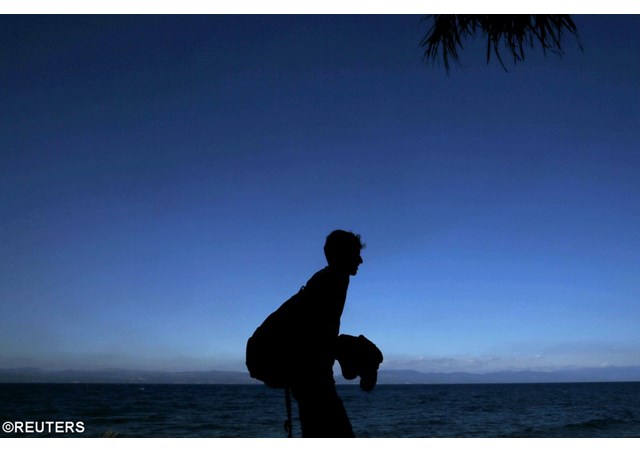
Refugee's journey to Rome brings hope for the future

(Vatican Radio) At 20 years old, Dost Mohamad is sure of a lot of things. He loves books, sports, and tutoring, and knows that one day he will graduate with a degree and get a job afterwards. The only thing he is not sure of, however, is where home is.
About four years ago, Mohamad left Afghanistan in a way similar to thousands of adolescent migrants currently struggling in the Middle East: alone and uncertain. Coming to Italy was a difficult and confusing time for him, but he looks back on it now with humility. Despite never having a permanent home, he used his independence to learn and grow, get an education, and make a life for himself in a foreign land.
Unlike those travelling with families, unaccompanied minors do not face the burden of working to find food and shelter for more than one person. In the young refugee community, Mohamad’s voice speaks volumes for those leaving everything they know behind to find a better future.
To hear more about his story, Sophia Pizzi sits down with Mohamad for a one on one interview.
Mohamad lists the steps of his journey with simplicity. He left Afghanistan around age 15, came to Italy, stayed in a refugee camp until he was 18, and then moved to Rome when he was no longer a minor. In this time, he learned Italian and started high school. He is currently in his last year of high school in Rome, and looks forward to getting his diploma within the next year.
For Mohamad, coming to a new country was no easy task. “Everything was new,” he says. “The language is new, the culture is new, the food is new, you cannot understand the people...I really cannot explain it. It was just very new for me.”
When it comes to life before Italy, Mohamad cannot say much due to how drastically his life has changed since then. “I had a normal life,” he remembers, saying he spent most of his time working instead of being a student. He cannot specifically say what brought him to Italy, but rather “leaves that up to you, to imagine what life is like for Afghans.”
At a young age, Mohamad dreamed of going to school. “It was not so important for my family, but for me, it was very important,” he says. When he first learned his native tongue, Persian, he also started to get books on learning English.
Mohamad’s family lives in Iran with the exception of his brother, who is in Switzerland. “I cannot say they have the best life in Iran,” he says, “because there is so much discrimination.” He contacts his family members frequently, calling them whenever he has the time. He left them six or seven years ago, and has met them only once since then, around two year ago. “In my experience, I think you can find everything. Food, friends…but family we cannot find,” he says, describing his reunion with them as inexplicable.
Along with attending school in Rome, Mohamad works in a paid government volunteer position to tutor other refugees on the Italian language and culture. “When I heard about this project, I chose the position because I know what they need and what they feel,” he says. “For me, I just want to give them hope, and it is a hope for me too. When I see them happy, I feel happy.”
Over the course of his time in Italy, Mohamad notes a distinct change in perception from religious communities. “They are really trying to help immigrants,” he says. “They don’t care where they come from, they just try what they can.”
Outside of this, however, Mohamad says many people “still have prejudices.” He sees many positive changes around himself, but he also acknowledges there are still challenges many face regarding the current “immigration phenomenon, where every day is getting worse and more people are coming here.”
When asked about the biggest challenges he faced, Mohamad said the language barrier was the toughest part of his journey here. He considered this difficult at the time, but looking back he sees that being alone granted him only a small fraction of the challenges that many face when travelling with a family. “Now I have more experience and am more open-minded, so when I see families I suffer a lot for them because it’s not just the language, it is everything.”
Mohamad also considers Pope Francis a model figure in his life. “It takes a lot for me to feel emotion, but one day I watched him on TV, heard him speak, and started to cry,” he remembers. “He really appreciates human value, and to see someone in this power force people to do the right things…I wish I could be more like that, and I try to be every day.”
Dost Mohamad teaches Italian to refugees at the Jesuit run Astalli Center in Rome. To find out more click here.
| All the contents on this site are copyrighted ©. |


